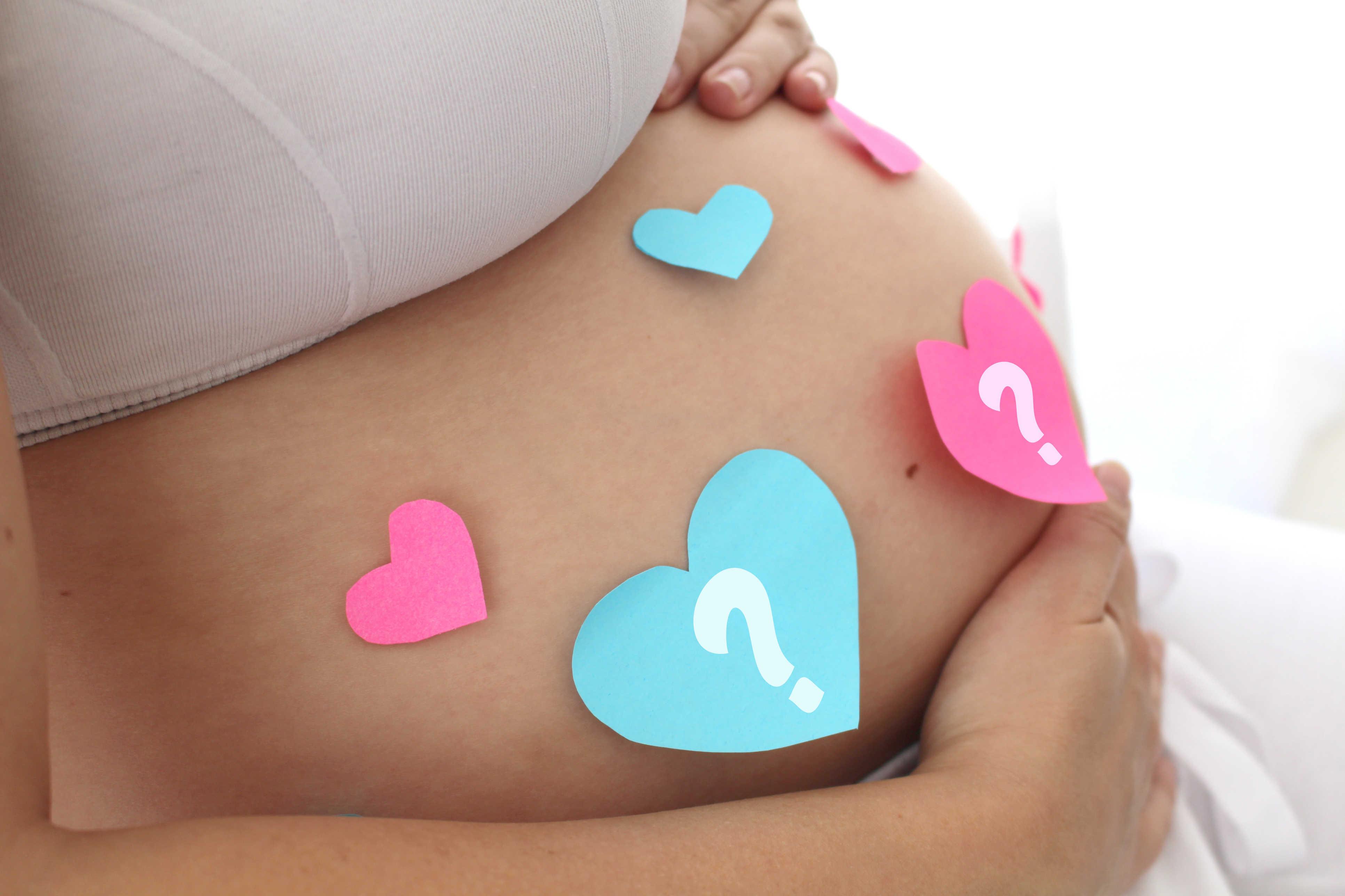The suspense is torturous: am I having a boy or a girl? An ultrasound technician can tell you, but they can be wrong. Until the Big Reveal, here are some entertaining, sometimes weird ways to predict your baby’s sex.

When and how can I find out my baby’s sex?
Most pregnant women find out their baby’s sex (if they choose to know) during their mid-pregnancy ultrasound, usually between 16 and 20 weeks. However, the technician may not be able to tell for sure if she can’t get a clear view of the baby’s genitals.
While a baby’s penis or vulva begins forming as early as 6 weeks, boy and girl babies look very similar on ultrasound until about 14 weeks, and it can still be hard to tell them apart for several weeks after that. By 18 weeks, an ultrasound technician should be able to identify the sex if the baby is in a position that allows the genitals to be seen. If not, you may be able to find out the sex if you have another ultrasound later.
Some people find out their baby’s sex through noninvasive prenatal testing (NIPT). This is a blood test that can detect Down syndrome and a few other chromosomal conditions at 10 weeks of pregnancy or later. It also looks for pieces of the male sex chromosome in the expectant mother’s blood to see if she’s carrying a boy or a girl.
Other people find out their baby’s sex from a genetic test like CVS or amniocentesis. These tests are usually used to determine whether a baby has a genetic disorder or a chromosomal abnormality like Down syndrome but may carry a slight risk of miscarriage. CVS is typically done between 10 and 13 weeks and amniocentesis between 16 and 20 weeks.
Can my baby’s heart rate tell me the gender?
Is there a way you can tell the gender of your unborn baby before it’s born? So many myths surround gender prediction that it’s often difficult to discern the real from the surreal. Of all the pregnancy myths, gender prediction myths are probably the most encountered. The most common of these rely on fetal heart rate to predict whether the baby will be a boy or a girl.
The truth of the matter is that a normal fetal heart rate fluctuates between 120 to 160 beats per minutes. In fact, if measure the fetal heart rate at ten minute intervals during an hour, you might just get six different heart rates, some below 140 beats and others below 140.
This variation has more to do with the developing fetal brain than the genitalia (although some would argue that the male brain and genitalia are one in the same.)
The fetus’ brain is controlled by the sympathetic nervous system (the flight or fight response) and the parasympathetic system (relaxation.) As the fetus develops, these two systems engage in a power struggle. The heart rate speeds up when stimulated by the sympathetic system, and slows down when controlled by the parasympathetic response. Doctors usually listen to the fetal heart for about ten to thirty seconds at a time in the office. If the baby is moving, the rate may be higher than if it were sleeping.
Baby girls cause more morning sickness?
This is one of those old wives’ tales that is not only literally an old wives’ tale, but is also believed today – the idea that how and when you are sick when you’re pregnant can give some clue as to whether it’s a boy or a girl. You’re sicker in the first three months with a girl than with a boy, but a boy causes pain after the first trimester. But according to current medical professionals, if you suffer badly from morning sickness or are ill throughout your pregnancy, you’re more likely to be carrying a girl.
The shape of your belly can tell your baby’s gender?
According to the very ancient lore, if you’re carrying a lower bump, it’s going to be a boy; if it’s higher, it’s a girl. According to the people who predicted my baby’s gender, he had a 50 percent chance of being a boy and 50 percent chance of being a girl, based on their scientific analysis. Thanks. How you’re carrying is not, scientists say now, a good indicator of your baby’s gender – it has more to do with your baby’s muscle tone, your personal shape, and even how old you are when you get pregnant.
[embed-health-tool-bmi]



















